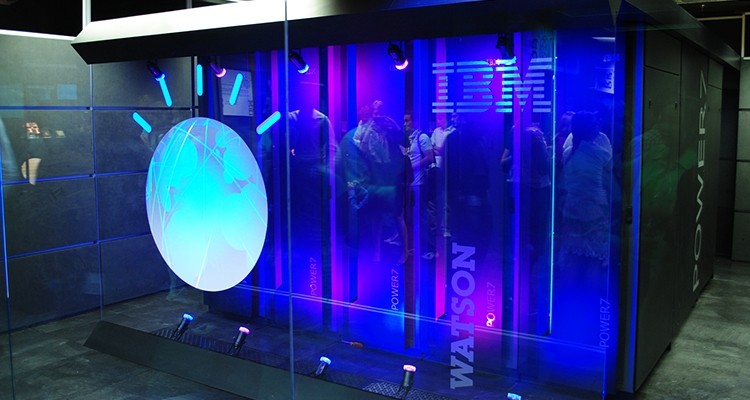
Job offers have been flying left and right for IBM’s Watson supercomputer ever since it famously beat two of the world’s top Jeopardy! players in 2011. From pastry chef to Wall Street analyst to a customer service worker answering phones at a call center. Now, after spending the last year honing its medical skills, Watson is ready to try its hand at helping doctors improve differential diagnoses and create better treatments.
IBM Research today announced two programs in collaboration with the Cleveland Clinic that are designed towards that goal. The first, WatsonPaths, uses the supercomputer’s question-answering abilities to examine a medical case from many angles, drawing inferences to support or refute a set of hypotheses in real time based on numerous data sources including reference materials, medical journals and a patient’s records.
WatsonPaths also incorporates feedback from physicians who can drill down into the medical text to decide if certain chains of evidence are more important than others and lead to the strongest conclusions.

The technology allows doctors to sift through information much more efficiently than they could on their own, while Watson’s artificial intelligence ties evidence together to support treatment options. Initially WatsonPaths will be used as a classroom training tool designed to help students and physicians make more informed and accurate decisions, and also to improve their critical reasoning skills. But the real-world potential is clear.
According to Dr. Neil Mehta from the Cleveland Clinic, Watson has already found things with a couple of patients that he initially missed. “It doesn't work every time, but it's getting better,” he said.
The second program, Watson EMR Assistant, aims to make sense of the massive amount of health data within electronic medical records to unlock hidden insights and help physicians make better decisions.
As IBM and the Cleveland Clinic note, the potential of EMRs has not been realized due to the discrepancies of how the data is recorded, collected and organized across healthcare systems and organizations. There’s no standardization and there's often missing data or strange alternative terms in use.
Using Watson’s natural language expertise and machine learning abilities the goal is to process unstructured data such as clinical notes, lab results and medication history in a way that makes better sense and correlates important events throughout the patient's medical history to help with decision making.